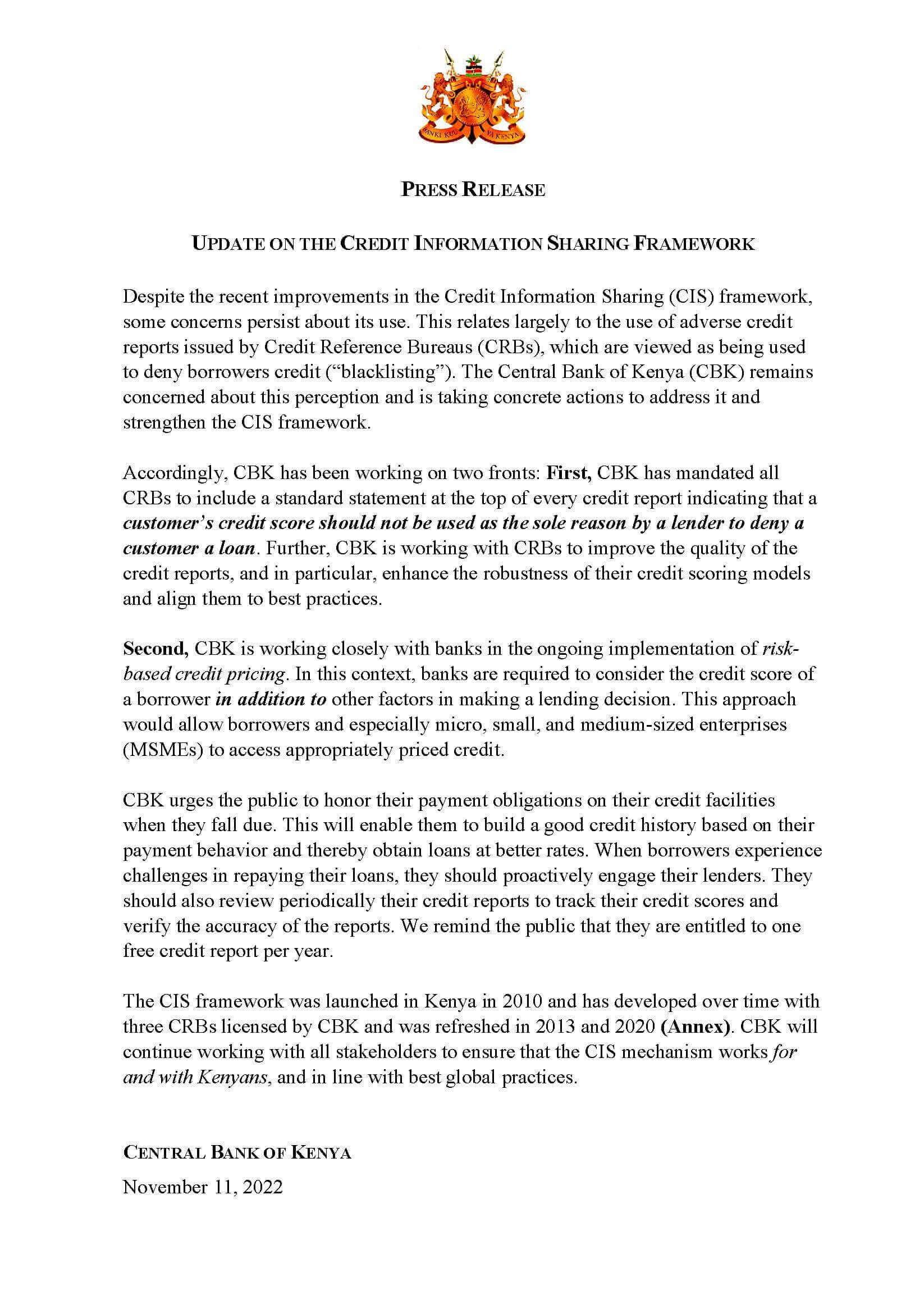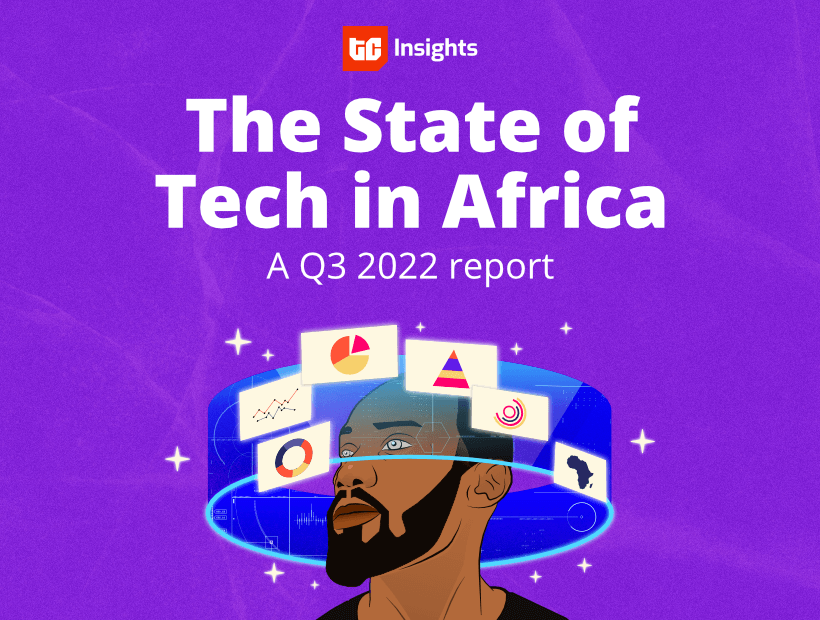
IN PARTNERSHIP WITH

Good morning ☀️
We’re going to be on TV!
Starting this Wednesday, TechCabal will be launching a weekly TV series called The Next Wave.

The Next Wave seeks to explore the business and impact of technology across Africa, how big tech and the fastest-growing startups are changing the continent, and decipher who the key players are and what’s driving their growth and strategic approaches.
It will air on CNBC Africa, DSTV Channel 410, by 4:30 PM WAT, starting this Wednesday. Tune in!
CRYPTO MARKET: FTX FILES FOR BANKRUPTCY AS CEO RESIGNS

|

|

|
|---|---|---|
|
Bitcoin 
|
$16,688 |
– 0.85% |
|
Ether 
|
$1,241 |
– 1.54% |
|
BNB 
|
$280 |
– 0.27% |
|
FTX Token 
|
$1.82 |
– 12.08% |
|
Binance Coin |
$1.00 |
0% |
|
|
Source: CoinMarketCap
|
|
* Data as of 15:10 PM WAT, November 13, 2022.
FTX has fallen from the third-largest crypto exchange platform to a bankrupt cesspool.
Barely a week after its financial woes came to light, the platform has filed for bankruptcy and its CEO, Sam Bankman-Fried, has resigned.
What does this mean for the one million people who used FTX to store and trade their coins? It means it could be years before they regain any of it, if they can at all. Over $8 billion in customer funds—including $75 million in pension funds for 200,000 Canadian education workers—is stuck on FTX.
Investors like Sequoia Capital and SoftBank also stand to lose all the $1 billion they invested in the company, which, in early November, had a $32 billion valuation.
FTX’s troubles don’t end there though. After filing for bankruptcy, the company announced on Friday that it had been hacked in a compromise that wiped out over $600 million in customer balances. “FTX has been hacked. FTX apps are malware. Delete them. Chat is open. Don’t go on FTX site as it might download Trojans,” wrote an account administrator in the FTX Support Telegram chat. After the announcement, many users reported that their account balances were drained, leaving $0. Unconfirmed speculations, however, allege that the hack was carried out by executives at FTX who used a back door to syphon funds.
Several government agencies, including the Securities and Exchange Commission (SEC), are now investigating founder Bankman-Fried and his executives who are under strict supervision in the Bahamas.
FTX’s downfall is the biggest crypto bankruptcy filing so far, and its troubles have wiped over $200 billion off the crypto markets.
Don’t just send money, send money fast. Send and receive money directly to mobile wallets, bank accounts, Barter or through cash pickup with $end.
Visit send.flutterwave.com and do it now!
This is partner content.
KENYA MOVES TO CURB BLACKLISTING
Don’t judge a book by its cover, is what the Central Bank of Kenya (CBK) is saying with its latest move to curb the blacklisting of credit defaulters.
Last week, the CBK released a statement restricting credit reference bureaus (CRBs) and other commercial facilities from using negative credit history to deny Kenyans loans.

The update requires all CRBs to state at the top of every report that credit scores should not be the sole reason why loans are denied.
A brief history
In 2010, Kenya launched its Credit Information Sharing (CIS) framework which would help banks and other commercial facilities share information about borrowing trends in the country.
According to the CBK, this framework should have been used to share “positive information” on performing loans—loans that have been repaid in full—thereby allowing more Kenyans to access loans. Instead, CRBs used the framework to share information on non-performing loans—loans that haven’t been repaid and this led to the blacklisting of several Kenyans.
In 2020, the CIS was updated with specific terms to prevent Kenyans from getting blacklisted. For example, the minimum for what could be considered a non-performing loan is Ksh 1,000 ($8).
That hasn’t stopped blacklisting though. Over six million Kenyans had been blacklisted by CRBs in 2022.
What’s changed?
As part of his manifesto, newly-elected president William Ruto wants to curb blacklisting. Since his swearing-in, Ruto has reviewed CRBs and declared their operations as “punitive” and “arbitrary”.
In September, a meeting with officials from Treasury, Central Bank, Safaricom, Kenya Commercial Bank (KCB) and NCBA led to the announcement that four of the six million Kenyan defaulters would be removed from the CRB defaulters’ list.
And now?
In addition to the statement that must now be included at the top of every credit report released by CRBs, the CBK is also to implement a new system that factors in credit score and other factors into the lending decision.
The apex bank has also urged all Kenyans to honour their loans, and constructively engage lenders when they have difficulty repaying.
SAFARICOM GROWS IN ETHIOPIA

One month after launching in Ethiopia, Kenyan telco Safaricom has recorded significant growth in its newest market.
Last week, Safaricom chief executive Peter Ndegwa announced that the telco had over 740,000 users on the network, with about 20,000 new subscribers joining daily.
In October, the telco went live in Ethiopia where state-owned telco Ethio Telecom had a monopoly of the market.
So far, it’s recorded a slow growth against Ethio Telecom which has an estimated 24.9 million users across the country.
But it’s still Safaricom’s first month. So far, the company is close to hitting a million users. “We are also encouraged by data and voice usage levels with 711 MBs average usage per active data customers and 30 Minutes of Use per active voice customers for the month of October,” Ndegwa said.
Up in subscribers, down in profit
The telco has also reported an 18% drop in profit for Q3, most of which is attributed to operational costs for its Ethiopian arm.
This year, it recorded Ksh 30 billion ($248 million) compared to Ksh 37 billion ($305 million) it made in profit-after-tax during the same period last year.
Safaricom reportedly spent Ksh 5.9 billion ($48 million) building its Ethiopian arm where it presently has 655 employees, 66 distributor shops and 2,000 outlets selling SIM cards.
Per The Standard, the company will be investing even more, up to Ksh 57 billion ($471 million), in Ethiopia in 2023 where it has obtained a mobile money operator licence.
Increase your online sales with a Paystack Storefront – a free, beautiful seller page that helps you bring creative ideas to life.
👉🏾 Learn more at paystack.com/storefront.
This is partner content.
TWITTER BRINGS BACK THE OFFICIAL BADGE

Twitter is swinging back and forth between operational decisions almost as much as its new owner is switching between stances on free speech.
Last week, the platform rolled out the new verification system. At the time, Twitter announced that subscribers of Twitter Blue—at $7.99 a month—would get the original blue checkmark, while legitimate accounts would get grey badges titled “Official”.
Less than 12 hours after the “official” badge was rolled out, Musk killed the feature after user complaints.
During the weekend, the feature made another comeback.
Why is it back?
Because Musk is in a bit of trouble with a couple of organisations and politicians.
After Twitter announced that anyone could get verified by paying for Twitter Blue, impersonation rose swiftly on the platform. Users created new accounts, paid for Twitter Blue, and promptly impersonated famous people, brands and organisations.
Impersonators of American aerospace arms company Lockheed Martin, Nestlé, former US president George Bush, and US pharmaceutical company Eli Lilly surfaced and made statements that did irrevocable damage. Even a Jesus Christ impersonator was verified by Twitter.
Some of these impostor accounts made posts that tanked stocks of companies like Lockheed Martin and Eli Lilly. The latter had $15 billion erased from its market cap after an account impersonating it announced that it would be providing insulin for free.
After an eventful day of impersonation, Twitter suspended the Twitter Blue feature and stopped all payments, but not before a reporter at Washington Post impersonated US Senator Ed Markey. The senator—who approved the impersonation—is now questioning Musk’s decision and demanding clarification for decisions on the verification process.
Zoom out: Musk himself has admitted that Twitter will do some dumb things as it struggles to find its feet, but it appears he’s still unsure of Twitter’s future. The billionaire told Twitter staff, in his very first email to them, that the company could be facing bankruptcy if it doesn’t increase its subscription revenue.
REPORT: THE STATE OF TECH IN AFRICA Q3

The State of Tech in Africa report is a bird’s eye view of technology trends in Africa for Q3 2022. It captures data around acquisitions, funding, startup expansion and regulations on the continent.
What’s inside?
- Total funding on the continent for Q3 is about $675.5 million, bringing the year’s total as of Q3 to $3.6 billion
- Despite the downturn, the average seed round remained stable at $2.5 million in Q2 and $2.7 million in Q3
- Acquisitions increased by 41% Q-on-Q.
- Two in three acquisition deals were between startups operating in the same country
- One hundred and five new startups launched this year, as of Q3
- About four African startups have shut down this year, as of Q3.
Ready for more insights? Click here to download.
Join us for the SSKöhn Webinar Series.
Topic: The Realities of Managing Employment Contracts
Date: Wednesday, 16th Nov, 2022.
Time: 11:00 AM WAT/GMT+1
Register here and follow @sskohnng on Twitter for more details.
This is partner content.
EVENT: FIDELITY INTERNATIONAL TRADE AND CREATIVE CONNECT

Fidelity Bank is hosting the maiden edition of the Fidelity International Trade and Creative Connect (FITCC). The event is set to hold between Tuesday, 15, and Wednesday, 16 November 2022 in London, United Kingdom.
FITCC will host leading businesses, entrepreneurs, investors, and regulators operating in the fintech sectors in Nigeria, the United Kingdom, and the wider European market, to promote Nigeria’s Non-Oil exports and facilitate networks via partnerships, co-creation opportunities, and foreign direct investments.
Interested businesses and participants can register for the conference at www.fidelitybank.ng/fitcc.
IN OTHER NEWS FROM TECHCABAL
Digital Nomads: How a Nigerian tech salesperson became a Meta product manager.
Coursera and NITDA have partnered to tackle youth unemployment in Nigeria.
Paga launches virtual cards in partnership with Visa.
OPPORTUNITIES
- TechPR is open for applications to its Be Seen with TechPR programme.Two startups will get media coverage on two relevant media platforms, introductions to key journalists covering their sectors, media relations training, and media assessment worth $5,000. Apply by November 14.
- Applications are open for the UK Research and Innovation African Research Leaders’ Programme. Talented researchers in sub-Saharan Africa leading quality health research in the region can apply to get up to £750,000 in funding. Apply by December 1.
- The Fondation Maison des sciences de l’homme and the Institut Français de Recherche en Afrique of Nairobi are offering a three-month-long fellowship in France for postdoc researchers from Kenya, Tanzania, Uganda, Burundi, Rwanda, and Eastern Congo (Kivu) who have presented their thesis from 2017. Laureates will receive a monthly stipend of €1,600 at the start of each month. Apply by December 9.
- If your startup or innovation is focused on climate-smart agriculture practices, apply to the THRIVE|Shell Climate-Smart Agriculture Challenge for a chance to win $100,000, a spot in a prestigious accelerator, publicity and more. Apply by December 11.
- Applications are now open for Apple’s Entrepreneur Camp. The immersive virtual camp will give founders and developers from underrepresented communities mentorship, technical support and access to the alumni network. Apply by December 5.
- If you have a business in the agricultural sector, apply to the African Development Bank’s AgriPitch competition—a 2-week virtual program—-to get business mentorship and win access to a grant pool of $140,000. Apply by November 4th.
What else is happening in tech?
- Egyptian B2B marketplace SPEED acquired by UAE-based firm X-ERA.
- South Africa signs landmark R150-billion energy transition deal.
- Airtel Africa and OneWeb to provide satellite internet connectivity across Africa.
REFER A FRIEND

| Click to share | |||
Share your unique link | |||
| https://techcabal.com/referral/?email={$email} | |||
Share on social | |||
    | |||
| Powered by Viral Loops | |||
SHARE THIS EDITION
In five short minutes or less, tell us how we can provide even better content for you in 2023 and stand a chance to win a $50 gift card.



























